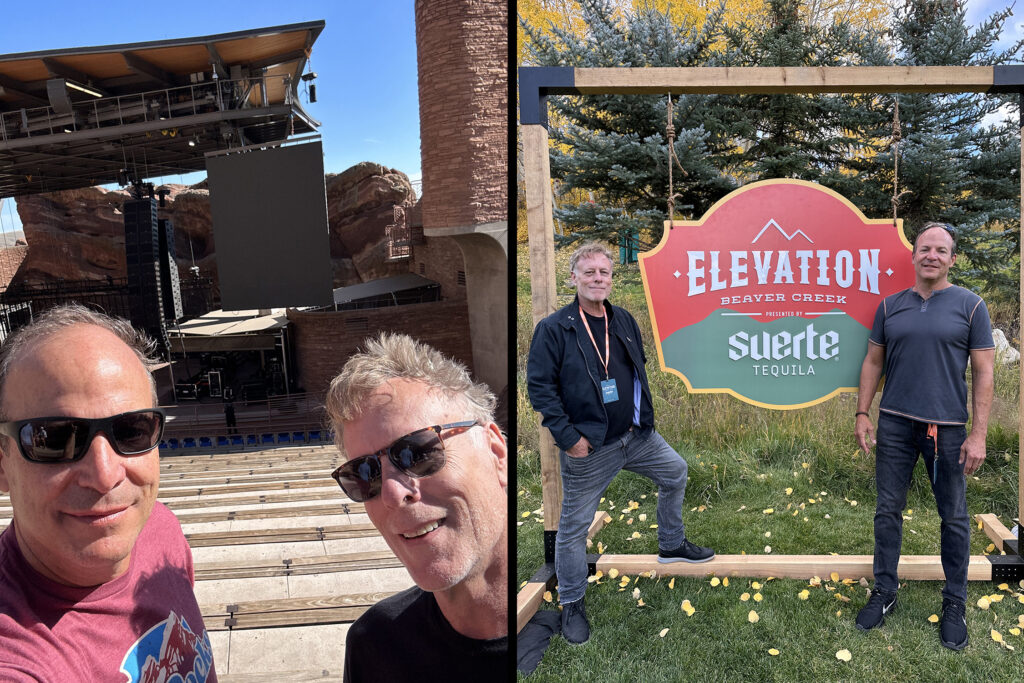 I’ve been in broadcasting for over four decades and worn many hats. I started as an intern out of college and ended up as a consultant, with stops along the way at four major-market radio stations, as a DJ, an events director, a Music Director, and finally Program Director and Operations Manager.
I’ve been in broadcasting for over four decades and worn many hats. I started as an intern out of college and ended up as a consultant, with stops along the way at four major-market radio stations, as a DJ, an events director, a Music Director, and finally Program Director and Operations Manager.
But, even with this wealth of experience, it is only becoming clear to me now how vital it is for a successful broadcasting company (or any business) to create a caring, nourishing and supportive environment for employees to be able to thrive.
There is a lot that has been written recently about how studies have shown workers to be more productive (and therefore businesses more successful) when employing a four-day work week. A common refrain from workers points to fundamental mathematics. With fewer hours spent on commuting, more hours become available to think creatively and execute the daily, mundane tasks which we face every day.
The pandemic, of course, necessitated remote work, and, some would say, opened a Pandora’s box which many in upper management viewed as a dangerous precedent. Having worked at CBS Radio for an extended period of time, I will tell you that I can’t ever imagine Mel Karmazin endorsing a post-pandemic work environment where all employees were not required to show up at their desk or in their studio every day.
Recalling my days at WXRK-FM in New York, I remember what a culture shock it was for me at age 28, to go from a family-oriented, tight-knit radio station on Long Island (WLIR) to the cold, corporate, antiseptic environment on Madison Avenue. While I met some great personalities while I worked there, there was a lack of creative energy. There was no “vibe.” The radio station itself wasn’t even on in the lobby when you stepped out of the elevator on the 22nd floor. Yes, Howard Stern was about to explode into the stratosphere while hosting the morning show, but everything and everyone else seemed like an afterthought. It was a bummer, and it didn’t take very long after the announced format change to Classic Rock for me to punch out right after my air shift. And that was weird for me, because the culture I came from encouraged the big hang, which was not limited to time spent at the radio station. That meant going to shows, hanging out in bars, and sleeping on couches in fellow DJ’s apartments- while their nocturnal pet ferrets kept you awake, running on a wheel in their cages (I’m talking to you, Marc Coppola).
There was a true sense of camaraderie shared by the airstaff, but we were not elitist just because we were on the air. We hung out and truly cared about everyone on a staff that numbered in the low 20s.

It was something we created ourselves, out of self-survival, perhaps. Ownership was sketchy at best. Paychecks were best cashed immediately in the morning because they often bounced in the afternoon. WLIR had more than its share of drama on all fronts, especially license issues with the FCC, as chronicled in the documentary film “Dare To Be Different.”
I remember thinking while I was at K-Rock that I would never experience that feeling – “us against the world,” “I got your back” amongst co-workers ever again.
But I was wrong.
Moving to WHFS in Washington DC in 1991, I found, much to my surprise, almost an identical situation.
Employees who consistently gave their lifeblood for a common cause, despite questionable management that did not treat its employees with the respect or compensation they deserved. WHFS became a significant and respected radio station that was highly regarded not only for its music integrity, but for creating the concept of a “radio show” (HFStival 1993-2004, -the blueprint for others to follow but never quite replicate) that became renowned in the music industry and highly profitable for the company.
Moving to a much smaller station in 2004 (WRNR/Baltimore) with the title of OM/PD, I found myself in a situation where I could control the exposure of my staff to the often misguided, thoughtless, and demoralizing policies of ownership. I took it upon myself to protect my staff and become a buffer between the owner and the employee. I tried my best to be flexible and not over-demanding. I didn’t “hotline” my jocks because of a tactical or engineering mistake. I did not berate them, opting instead on how to improve, and to take solace in fact that the “bad break” he or she just did on the air was “already in the ether.” I tried to stay positive at all times and expected the same in return.
It was the first time in my career that I had an opportunity to significantly control the culture.
What did I get in return?
The people who worked for me, generally speaking, would go above and beyond the call of duty and they demonstrated loyalty, tenacity, and most of all enthusiasm for the mission. I’m proud to say that WRNR accomplished more than almost any 6,000-watt radio station could have hoped for. Deeply entrenched in Annapolis, the state capital of Maryland, we took great pride in our ability to stage significant events while featuring a talented, veteran air-staff that was willing to go to extreme lengths to ensure the success of a “mom & pop” business in the face of great adversity, including a flood from hurricane Isabel in 2003 and a Thanksgiving night fire in 2006 that nearly burned our building to the ground.
What have I learned since?
 After a brief retirement in 2022 (WRNR was sold to a Christian broadcast group 10 months later) a new opportunity arose with a company that exemplifies a positive and inspiring work culture. I became the newest member of a small team (14 employees) who, despite geographical diversity, truly feel like a close-knit family. The people in the company are passionate about their work and always willing to help fellow employees, even if it means postponing their own priorities. There is this feeling of joy, when interacting with each other, which no doubt has much to do with the company’s current and unprecedented success.
After a brief retirement in 2022 (WRNR was sold to a Christian broadcast group 10 months later) a new opportunity arose with a company that exemplifies a positive and inspiring work culture. I became the newest member of a small team (14 employees) who, despite geographical diversity, truly feel like a close-knit family. The people in the company are passionate about their work and always willing to help fellow employees, even if it means postponing their own priorities. There is this feeling of joy, when interacting with each other, which no doubt has much to do with the company’s current and unprecedented success.
As an example, my first week on the job, after a cross-country business trip, I was asked to submit an expense sheet. The CFO emailed me and asked about an apparent omission, when I did not list the cost of transportation from my house to the airport. I replied by saying it was incidental, that my daughter had dropped me off at BWI, that it was no big deal. Sandy responded by telling me I should calculate the mileage, submit the expense, and buy my Starbucks-addicted daughter a gift card. I found that small gesture to be most meaningful, and I knew immediately what kind of culture I’d immersed myself in.
The company is, of course, Paragon.
We have some ideas about creating a positive work culture and would love to share them with you.

Leave A Comment